Are you navigating the complexities of legal documents and in need of notarization? It's essential to ensure that your paperwork is authenticated by a trusted notary, as this adds a layer of credibility and legal standing to your document. Whether you're finalizing a contract or preparing a will, knowing how to craft the perfect request letter can make all the difference. Ready to dive deeper into the steps for writing an effective notarization request? Let's explore!
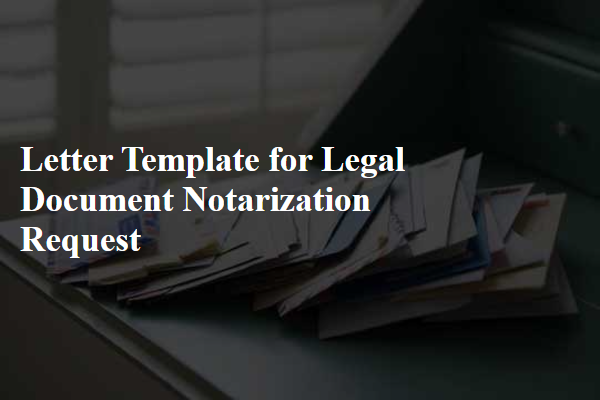
Clear Subject Line
Notarization requests for legal documents require precision and clarity to ensure all necessary details are communicated effectively. A request should include specific information such as the document type (e.g., a property deed, contract, or affidavit), the involved parties' names, the date of the notarization (preferably a specific date), and location (city and state) where the notarization will occur. In addition, it can be beneficial to mention any relevant identifiers, such as document reference numbers or case numbers related to the legal matter. Providing this information streamlines the process and helps the notary public understand the requirements, ensuring a smooth and efficient notarization service.
Detailed Recipient Information
A legal document notarization request involves specific recipient information to ensure proper processing. This includes the full name of the individual or organization requiring notarization, such as John Doe or ABC Corporation. The physical address should contain the street number and name, city, state, and ZIP code, for example, 123 Main Street, Springfield, IL 62701. Contact details should include a phone number (e.g., (555) 123-4567) and email address (e.g., john.doe@example.com) for correspondence. Additionally, including the document type needing notarization, such as a power of attorney, and any relevant case or transaction numbers provides clarity. A precise date for the requested notarization, such as October 30, 2023, is essential for scheduling purposes. Furthermore, any specific instructions or requirements should be noted to guide the notary in fulfilling the request accurately.
Precise Document Description
A notarization request seeks verification of the authenticity of a document, ensuring its acceptance in legal transactions. Important details include the document type, such as a power of attorney or property deed, specific signatories involved, and the date of execution. Identification methods for the parties may include government-issued ID numbers or Social Security numbers (in the United States). The location of notarization, like county or state, influences the applicable laws. Notaries, appointed officials, must witness the signing and ensure that all involved parties understand the document's content and implications, thereby providing an official acknowledgment of consent and agreement.
Notarization Purpose and Date
A notarization request typically includes a specific purpose, such as validating a legal document, verifying signatures, or witnessing the signing of contracts. These documents, including wills, powers of attorney, and real estate transactions, often need notarization to ensure authenticity and legal compliance. Notarization dates can vary but are often required to be within a certain timeframe, such as 30 days before the signing of a contract. The location of notarization is important as well, often including state requirements (e.g., notaries in California must be commissioned in California) to ensure jurisdictional validity.
Contact Information and Signature
Notarization of legal documents requires specific attention to detail. Essential elements include the requestor's contact information, comprising name, address, phone number, and email, ensuring clear communication. Signatures must align with the identities presented, typically accompanying printed names and dates, affirming authenticity. Additionally, important information regarding the type of document needing notarization, such as contracts, wills, or affidavits, should be specified to facilitate the notary's verification process. A notary public, often commissioned by state authorities, plays a crucial role in witnessing signatures, validating identities through government-issued IDs, and ensuring the legality of the document in compliance with relevant state laws.

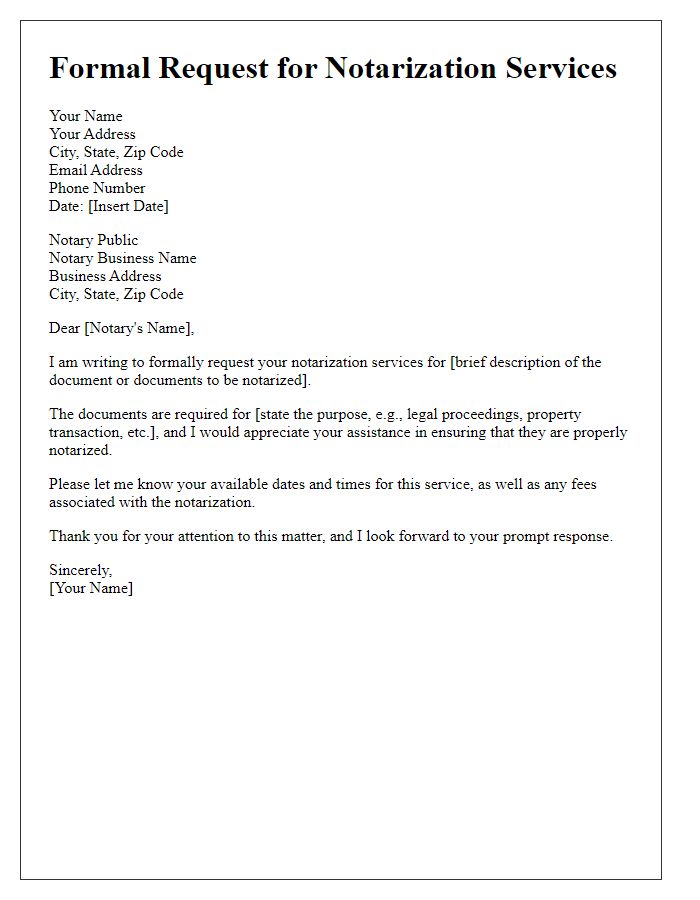
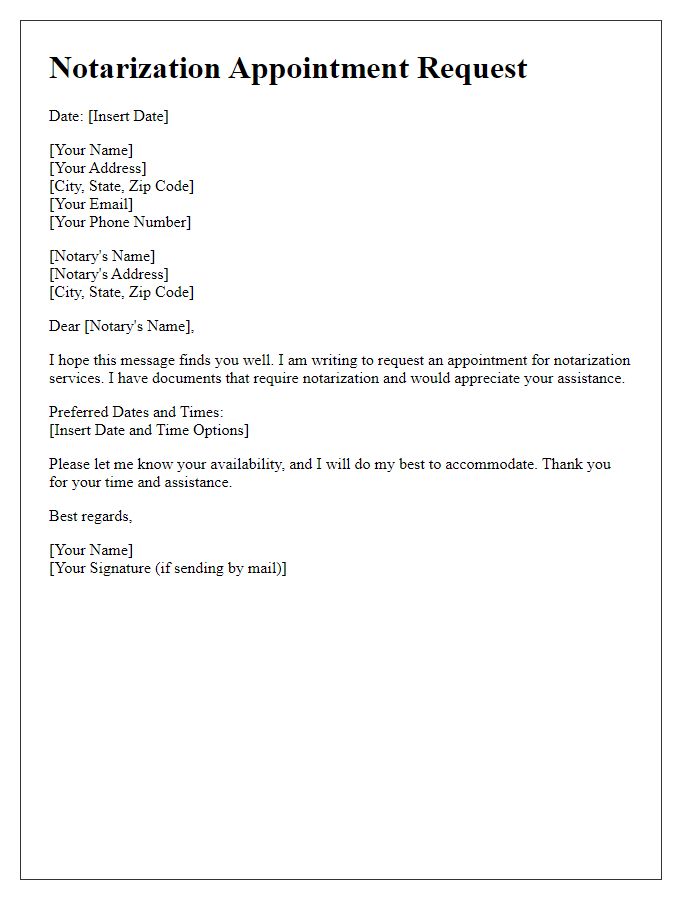
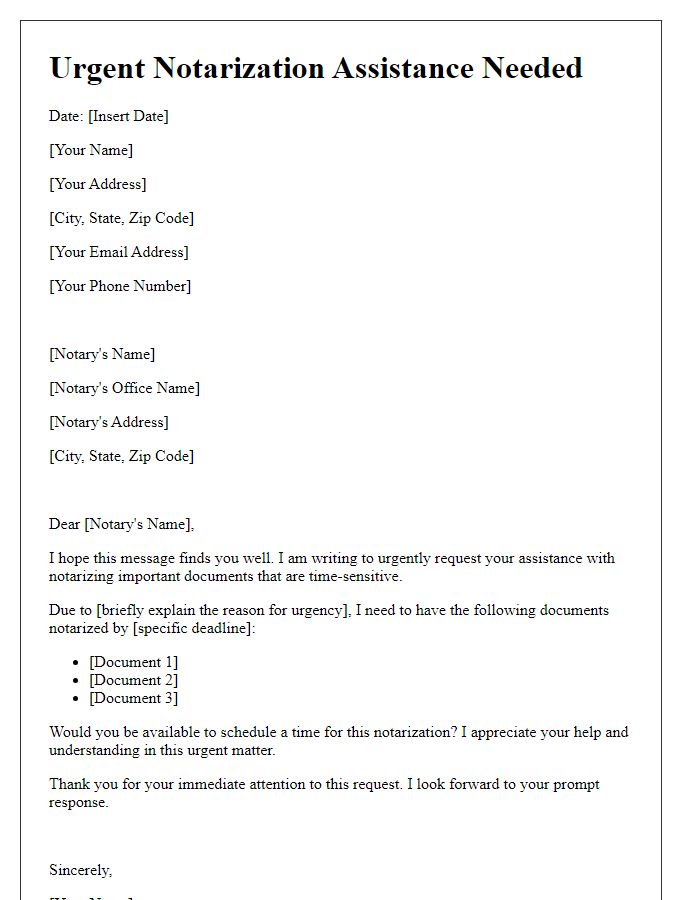
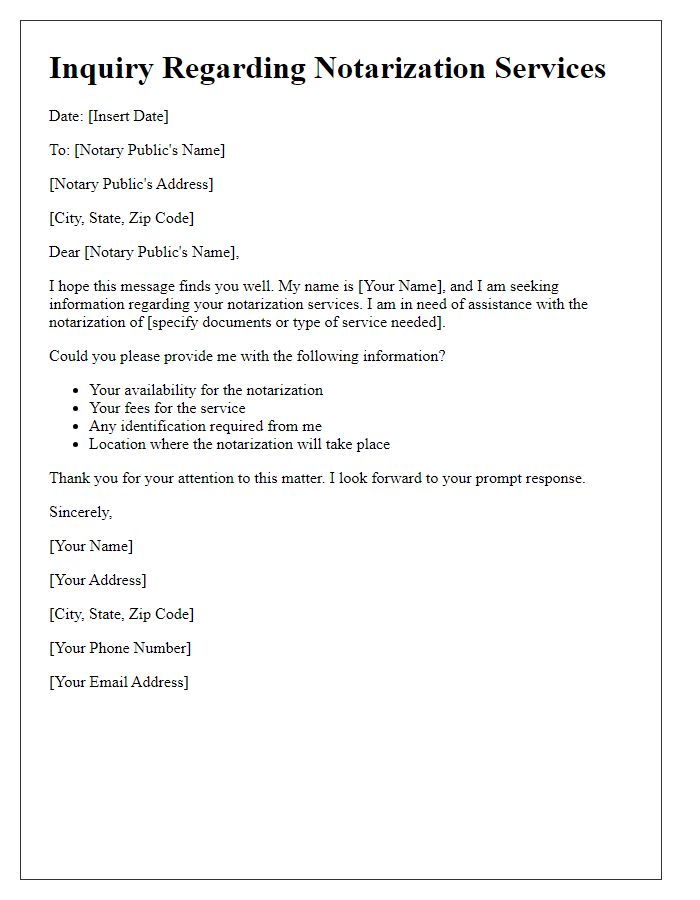
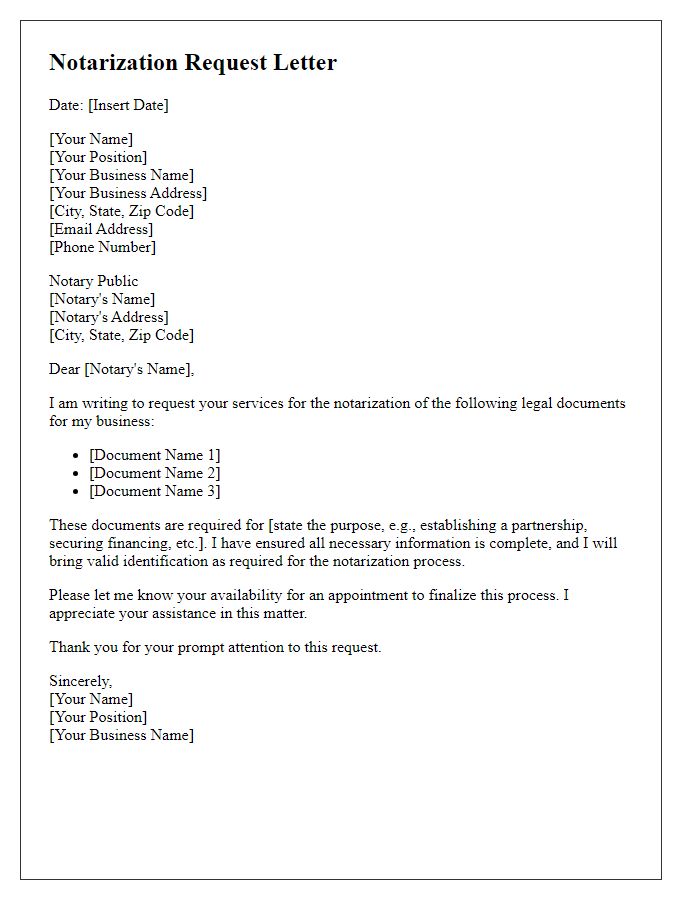
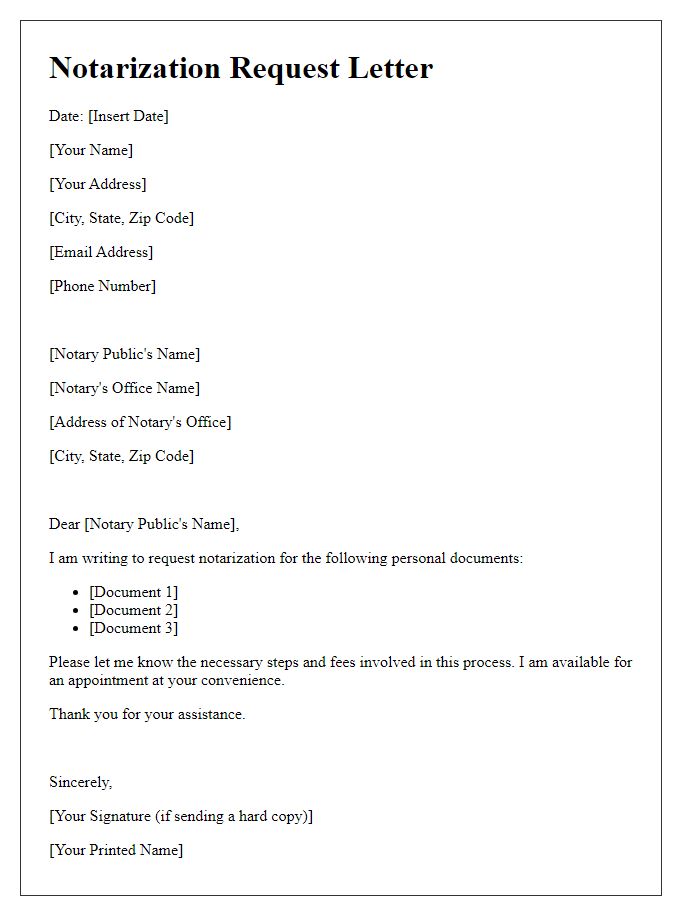
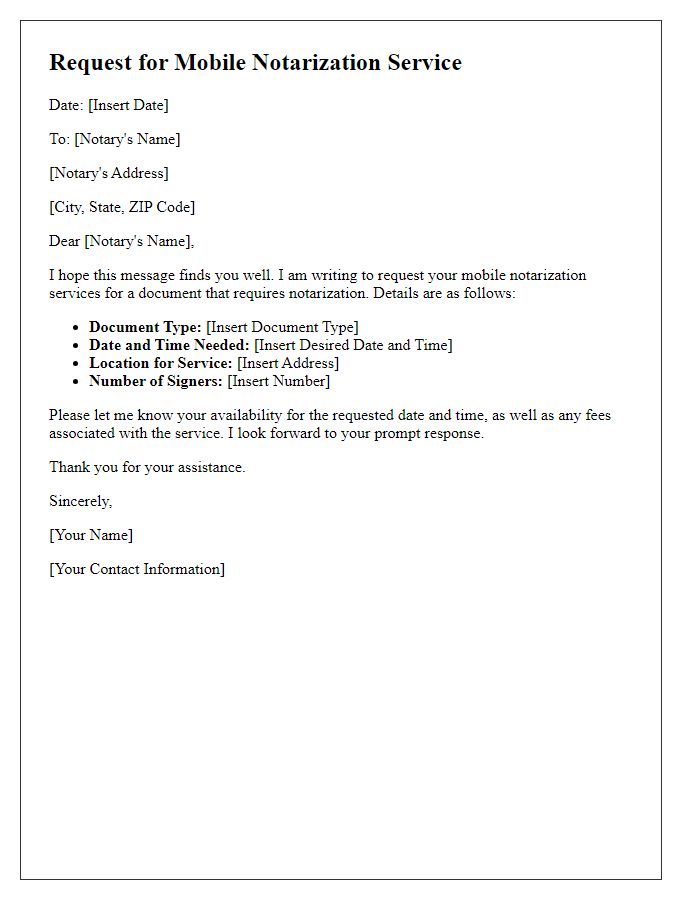
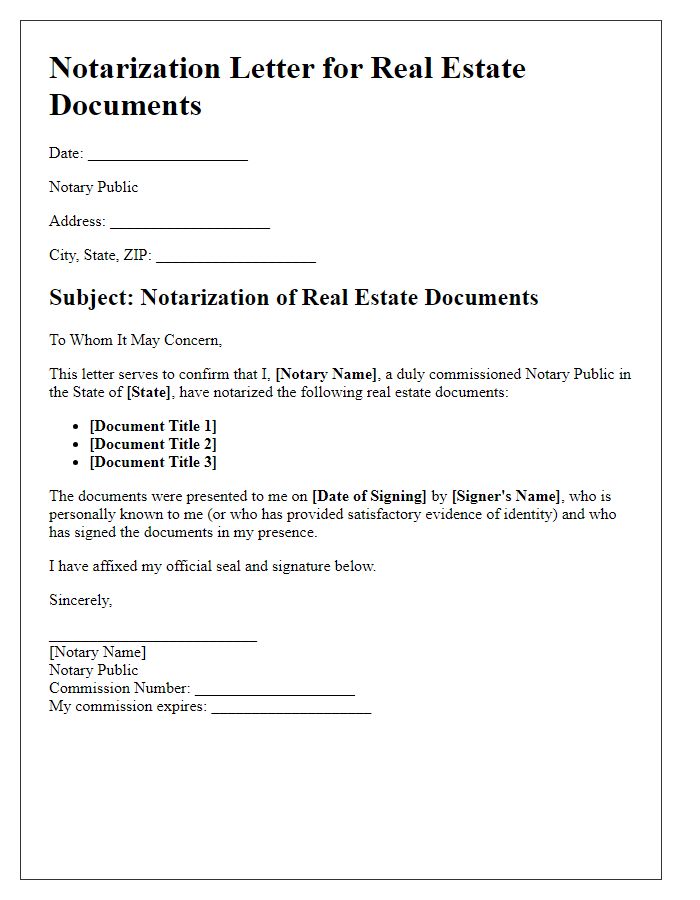
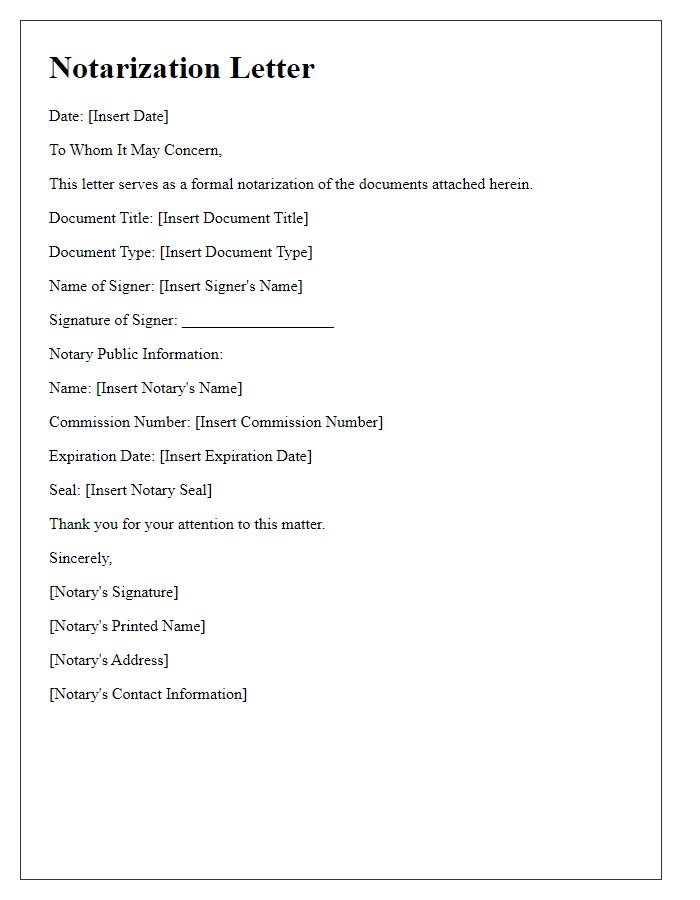
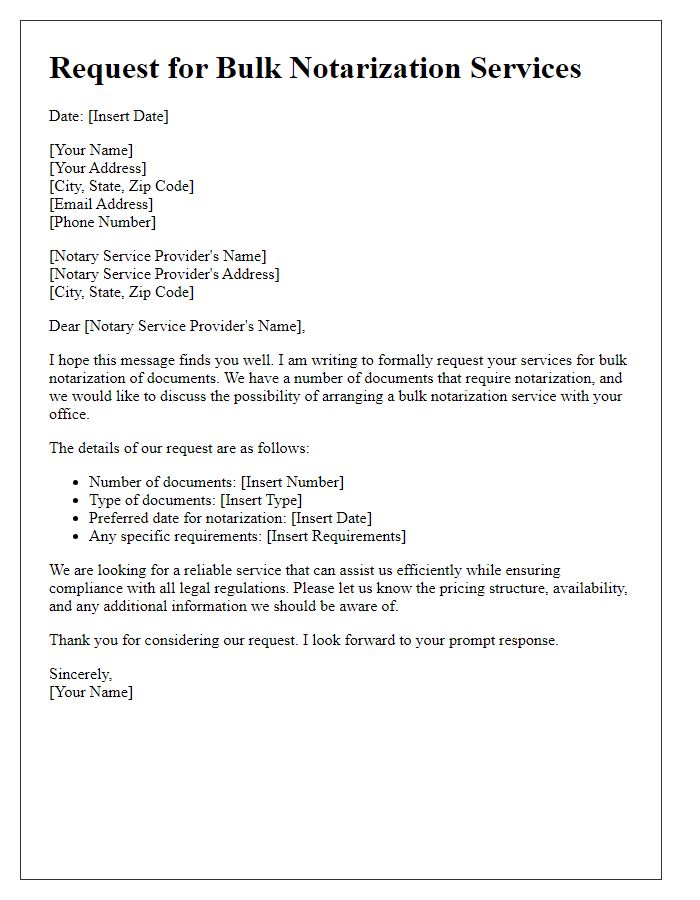


Comments